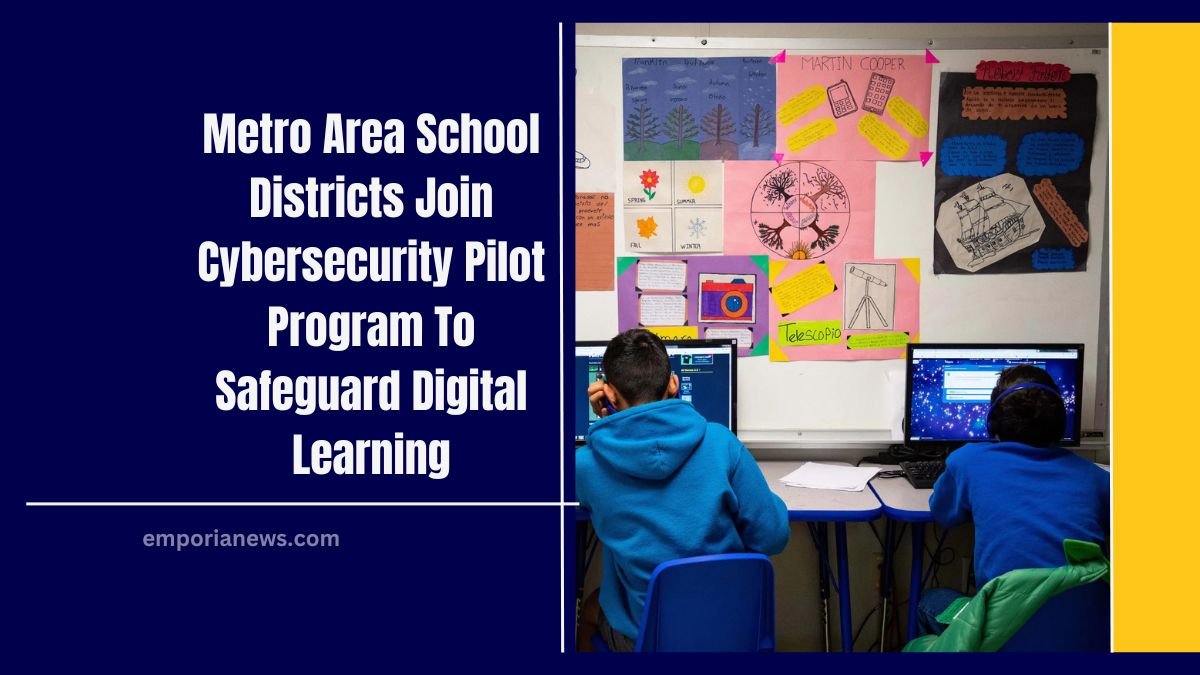School districts in the Kansas City metro area are stepping up their defenses against cyber threats as part of a new Federal Communications Commission (FCC) initiative.
This three-year cybersecurity pilot program aims to help schools and libraries protect their digital infrastructures, ensuring safer access to educational opportunities in an increasingly connected world.
What Is the Cybersecurity Pilot Program?
The Schools and Libraries Cybersecurity Pilot Program is a federal initiative designed to enhance cybersecurity in educational institutions and libraries.
With the rise in cyberattacks targeting schools, the program provides essential funding to implement and evaluate cybersecurity measures.
- Participants: The program includes 707 participants nationwide, comprising 645 schools and districts, 50 libraries, and 12 consortia.
- Goal: To improve national cybersecurity by analyzing how universal service funds can be used for this purpose.
- Funding: A total of $200 million has been allocated to support the initiative.
Kansas City Metro’s Role in the Program
Three school districts from the Kansas City metro area were selected to participate in this groundbreaking program.
These districts will receive funds to purchase eligible cybersecurity services and equipment. The data collected from their participation will inform national strategies to combat cyber threats in educational settings.
Why Kansas City Metro Was Chosen
- Regional Representation: The FCC aimed to include a wide range of participants across different regions to gather diverse data.
- Increasing Cyber Threats: Like many areas, Kansas City schools have faced cybersecurity challenges, highlighting the need for improved systems.
- Commitment to Digital Learning: The area’s focus on integrating technology into education made it a prime candidate for this program.
Challenges Addressed by the Cybersecurity Pilot Program
The rise in digital learning technologies has been accompanied by a surge in cyber threats targeting schools and libraries. Some common challenges include:
- Data Breaches: Schools handle sensitive information, making them attractive targets for hackers.
- Ransomware Attacks: Cybercriminals often target schools with ransomware, demanding payments to restore systems.
- Bandwidth Strain: Increasing digital connectivity has created vulnerabilities in outdated or insufficient infrastructure.
The FCC’s program will assess how funding can address these issues without compromising educational goals.
Key Features of the Cybersecurity Pilot Program
| Feature | Details |
|---|---|
| Funding | $200 million budget for cybersecurity services and equipment |
| Participants | 707 participants, including Kansas City metro school districts |
| Focus Areas | Data protection, network security, and response systems |
| Evaluation Period | 3 years |
| Data Collection | Real-world insights to inform national cybersecurity policies |
The FCC’s Vision for Cybersecure Education
FCC Chairwoman Jessica Rosenworcel emphasized the importance of cybersecure digital learning. She stated that the program will help federal, state, and local governments coordinate efforts to address the growing cyber needs of schools and libraries.
The initiative also aims to ensure that cybersecurity improvements do not hinder academic success, creating a safer, more reliable digital environment for students and educators.
The FCC’s Cybersecurity Pilot Program marks a significant step forward in protecting educational institutions from the growing threats of cyberattacks.
Kansas City metro schools’ participation highlights their commitment to secure digital learning environments for students and educators alike.
As the program unfolds, the insights gained will shape future strategies to ensure that education and technology can coexist safely and efficiently in an increasingly connected world.




